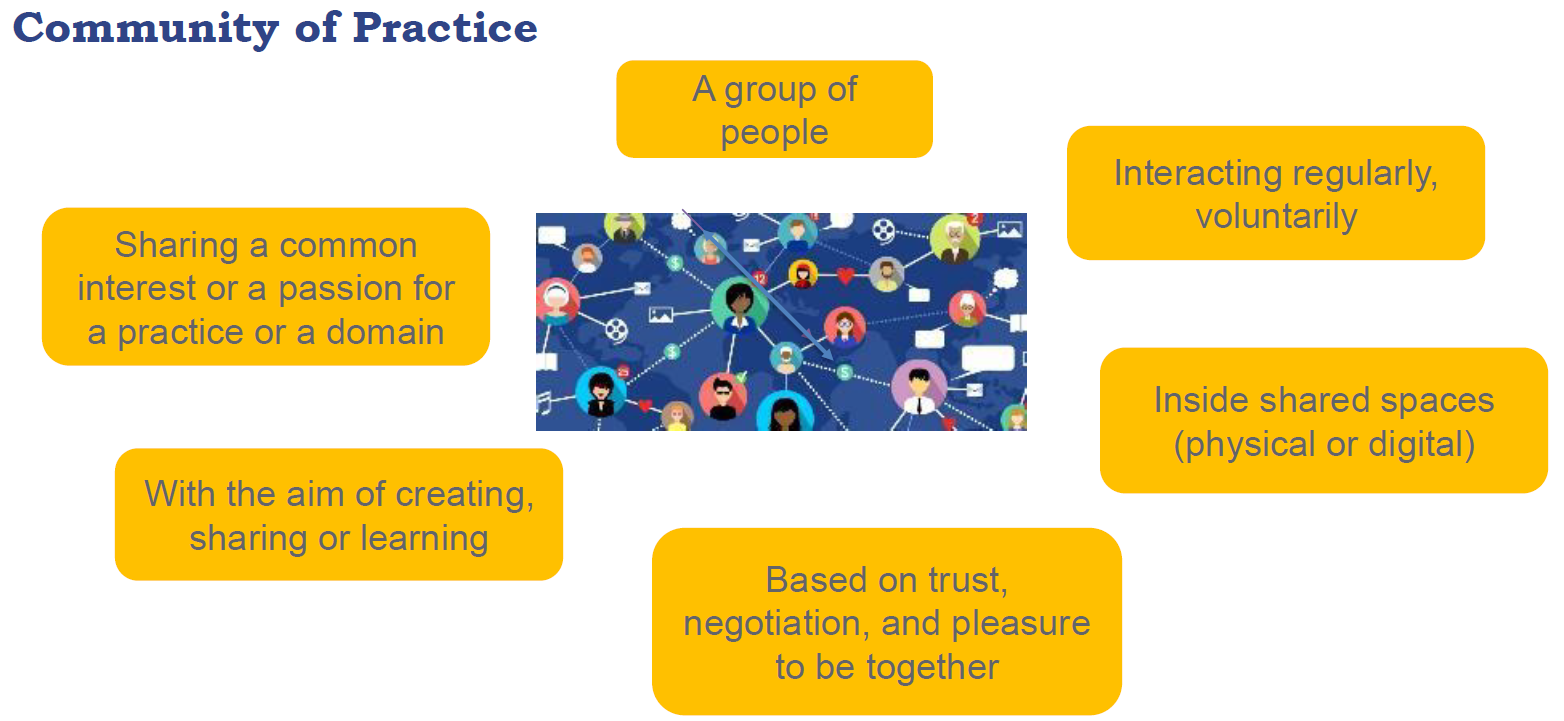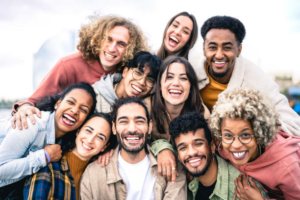Will AI kill communities?
In a world where artificial intelligence (AI) is advancing at breakneck speed, many questions are emerging about its impact on organizational dynamics. Among these concerns, one particularly pertinent question arises: will AI kill off communities of practice in organizations?
Understanding communities of practice
Communities of practice (CoPs) are groups of professionals who come together to share knowledge, experiences, and best practices in a specific field or profession. They play a crucial role in professional development, innovation, and problem-solving within organizations. These communities foster collaborative learning and strengthen a sense of belonging among employees.

AI: A threat or an opportunity for CoPs?
AI offers powerful tools to improve knowledge management and collaboration in businesses. For example, federated search engines coupled with generative AI can facilitate access to information and improve the quality of answers to questions.
Additionally, automated learning platforms can offer tailor-made courses, adapted to the specific needs of employees.
However, AI cannot replace the human dimension of CoPs. Social interactions, informal exchanges, and a sense of community are key elements that cannot be replicated by machines.
CoPs help build trust and foster a culture of collaboration and mutual support, which are essential for the long-term success of organizations.
The impact of AI on CoPs
AI, with its automation and data analysis capabilities, could potentially transform the way CoPs operate. Here are some points to consider:
- Automation of repetitive tasks: AI can automate certain repetitive tasks, freeing up time for CoP members to focus on higher-value activities. However, this could also reduce opportunities for human interaction, which is essential for sharing tacit knowledge.
- Access to Information: AI systems can provide instant access to a vast amount of information, potentially making exchanges within CoPs less necessary. However, information is not synonymous with knowledge. CoPs allow for contextualization and interpretation of data, something AI cannot yet do in such nuanced ways.
- Personalization of learning: AI can offer personalized learning paths, tailored to individual needs. However, this could isolate employees and reduce opportunities for collaboration and co-creation of knowledge.
- Role Evolution: With AI, roles within CoPs could evolve. For example, community facilitators could focus more on managing human interactions and creating synergies, rather than simply disseminating information.

AI as an ally of CoPs
Rather than seeing AI as a threat to CoPs, it is more appropriate to consider it as a complement:
- Identify experts : AI can help identify experts within the organization and facilitate connection between CoP members.
- Enrich : AI can enrich discussions by providing in-depth analyses and identifying emerging trends.
- Structure : It can also help structure the knowledge shared within CoPs, making the information more accessible and actionable.
To conclude
AI won’t kill corporate communities of practice . On the contrary, it can strengthen them by improving access to information and facilitating collaborative learning. Organizations that leverage the benefits of AI while preserving the human dimension of CoPs will be best positioned to succeed in a constantly changing world.
To find out more
References :
- How to stimulate the engagement of members of a community of practice?
- The Practical Guide to communities, Guy Parmentier, Florence Crespin-Mazet, Karine Goglio, Catherine Thiesse, et Louis-Pierre Guillaume, Édition d’innovations, 2023
- The communities, a new model of organization?
Call to Action – Free diagnostic
Request a 45-minute appointment : https://amallte.com/diag-EN


Leave a Reply
Want to join the discussion?Feel free to contribute!